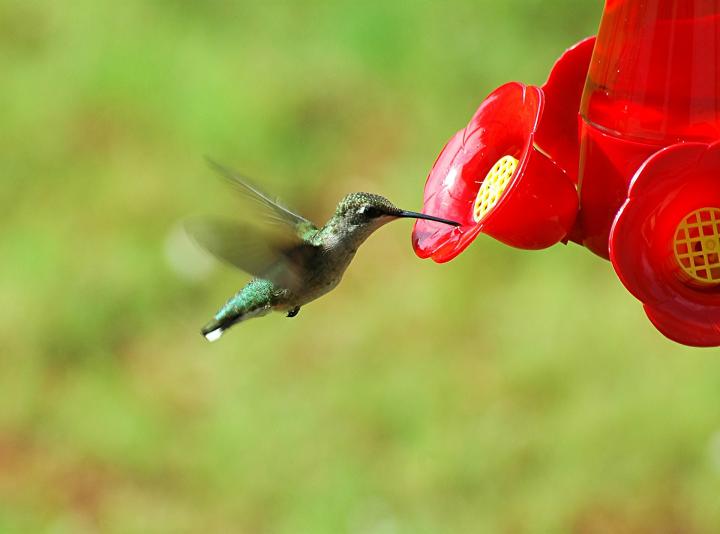
Attract Hummingbirds with Our Easy Homemade DIY Nectar Recipe
ADVERTISEMENT
I clean my feeders with hot water & an old toothbrush, sometimes with a drip of dawn, sometimes in the dishwasher. Always rinse a lengthy time with hot water. I wouldn't drink bleach any more than dawn detergent. That remark in the article about don't use anything you wouldn't drink makes me hope the author doesn't drink bleach. Yowza.
I use Dawn to wash my feeders, every few days. I use a brush and rinse well. The commercial for Dawn, leads you to believe it is safe.
Is this not so?
So true about the fighting. I have 3 feeders and 3 hummingbirds and they still squabble.
I don't set out feeders because I have a heavily landscaped acre with all sorts of flowers and about 100 Rose of Sharons. The hummers seem to prefer the Rose of Sharons to all the other flowers. But I have seen them on some of the annuals like zinnias, too.
I use a quart jar for mixing nectar (1 cup sugar and fill jar with cold water and shake until dissolved) have 5 feeders hanging in front of sun porch and 1 hanging outside kitchen windows in the rear and have 25-35 hummingbirds every year. Love watching and feeding them
I have a feeder in the front yard and one in the back yard...they still squabble...
I thoroughly enjoyed viewing the many different Hummingbirds. I will most certainly purchase a Hummingbird feeder and plaace it out in my back yard. Thank You for all the informative facts conerning this type of bird.
I lived for 12 years in Deep South Texas, on the migratory route for several varieties of hummingbirds. At the peak of the migration, I used a gallon of nectar DAILY in my six feeders that attracted dozens & dozens of hummers.
I advise buying feeders that can be disassembled and are dishwasher safe. The dishwasher water, I found, was hotter than anything I could tolerate by hand washing. My feeders were very clean by doing this.
If you have bottle-type feeders, do invest in a couple bottle brushes, to scrub any nasty stuff that sometimes grows in the feeder.
I'll certainly keep those facts about cleaning the Hummingbird feeder.
Thank you for the cleaning advice. I have 5 feeders up since late February when we saw a couple looking around. We must be in the migrating path here in north central Texas because one day there are 4-6, the next 30 and the next day back to the regular 4-6.
When we pull the feeders from storage and clean them, we use vinegar. I don't have any bottle brush that can get whatever is stuck inside so after soaking and rinsing the vinegar I use a couple tablespoons of sugar and a little water to swirl and "sand" the inside of the feeder. Rinse again and fill!
We reduce the number of feeders when our 50+ Red Yucca plants and flower garden are in full bloom!
Thanks again for your information!
I don't boil the water, just use hot water and shake the jar until all of the sugar dissolves. I replace the nectar every other day when the temperature is below 80°F/26.6°C; every day when above. If you use bleach (I do not) you MUST make sure to rinse ALL of the bleach off. I just scrub thoroughly with the hottest water I can stand and use a bristle brush to clean the sipping ports.











